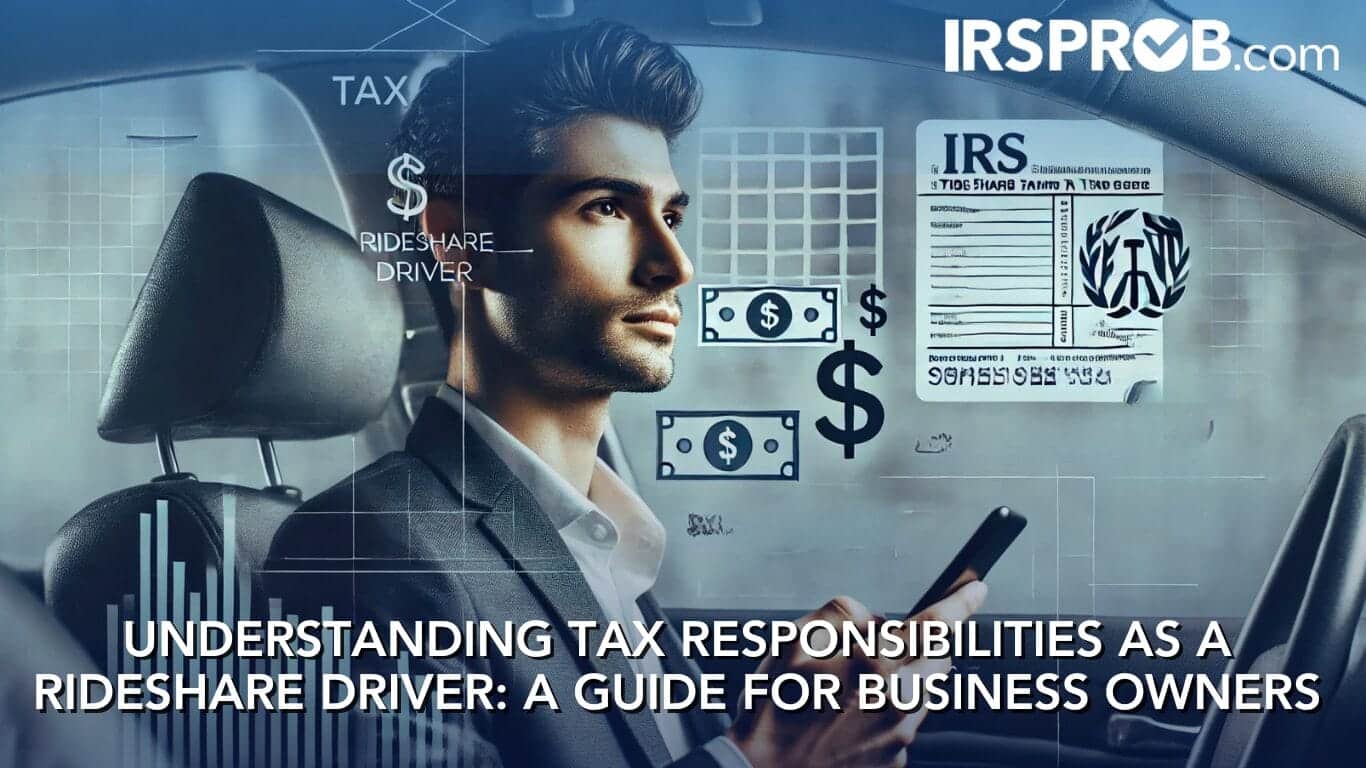
As rideshare services such as Uber and Lyft continue to grow, many individuals are taking the opportunity to work as drivers. While this can be a flexible and lucrative endeavor, it also comes with specific tax obligations that every rideshare driver, particularly those treating it as a side business, needs to be aware of. For business owners looking to leverage rideshare driving or similar gig economy opportunities, understanding the tax implications is crucial for staying compliant and optimizing deductions.
Independent Contractor Status
Rideshare drivers are classified as independent contractors, meaning they are considered self-employed. This classification is significant because it shifts the responsibility of managing taxes onto the driver. Unlike traditional employment where taxes are automatically withheld, independent contractors must track and pay their own federal, state, and self-employment taxes.
Key Tax Forms
- Schedule C (Form 1040): This is where drivers report all income and expenses related to their rideshare business. If your net profit exceeds $400, you’ll also need to pay self-employment tax through Schedule SE.
- Form 1099-NEC: If you earn bonuses, incentives, or referral payments exceeding $600, you’ll receive this form. Even if the total is less than $600, you’re still responsible for reporting this income.
- Form 1099-K: Rideshare drivers who receive payments via third-party platforms will receive this form, which reports fares and fees processed by the rideshare company.
Deductible Expenses
Rideshare drivers are entitled to numerous tax deductions that can significantly reduce their taxable income. These deductions fall into two categories:
Car Expenses:
- Standard Mileage Rate: For 2024, the standard rate is 67.0¢ per mile driven for business purposes. This is often the simpler option since it only requires you to track your mileage.
- Actual Car Expenses: Alternatively, you can opt to deduct actual expenses, such as gas, oil changes, insurance, and repairs. It’s essential to keep accurate records and receipts for all business-related costs.
Other Common Deductions:
- Refreshments for Passengers: Snacks, water, and other refreshments offered to passengers can be deducted, though they are subject to a 50% meals expense limit.
- Cell Phone Expenses: If you use your phone for both personal and business purposes, you can deduct a portion of your cell phone bill. A second phone used exclusively for business can be fully deducted.
- Service Fees: Any fees paid to the ridesharing company, such as Uber’s service fees, are deductible.
Real-World Example
Let’s take Holly, a part-time Uber driver in 2024. She drives 545 business-related miles and receives $2,112 in fares, plus an additional $85 in bonuses. After deducting her expenses, including mileage, cell phone use, and Uber’s service fees, Holly’s net profit is $1,159. From this, she needs to account for federal, state, and self-employment taxes, which total $326.
This example illustrates how understanding deductions can help minimize tax liability and optimize take-home earnings.
Importance of Record-Keeping
Maintaining clear and accurate records is critical for independent contractors. Rideshare drivers should track business mileage, save receipts, and monitor all income. Consider using apps or software designed to help with mileage tracking and expense management.
Final Thoughts
For rideshare drivers and small business owners alike, understanding the tax rules surrounding independent contracting is essential for ensuring compliance and minimizing tax burdens. By taking advantage of available deductions and maintaining good records, rideshare drivers can keep more of their hard-earned income. Business owners can also benefit from this knowledge, especially when exploring gig economy opportunities as side businesses or part of larger business strategies.
If you have questions about your specific situation, consulting with a tax professional is highly recommended. Proper planning can help you avoid costly mistakes and ensure you’re maximizing your deductions.







